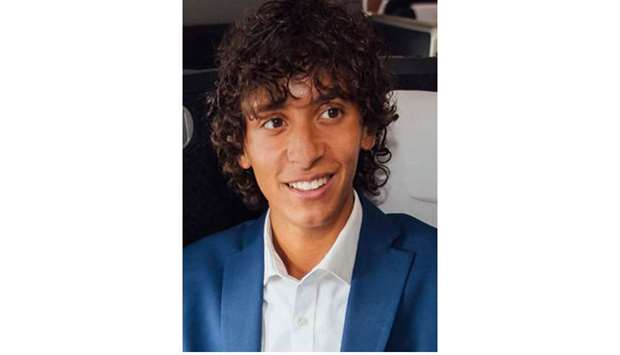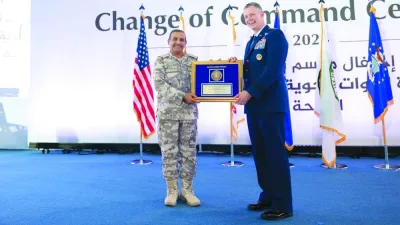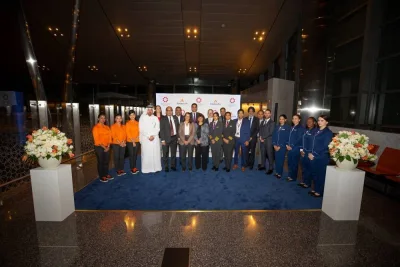It’s becoming increasingly evident that recovery for air travel is taking shape faster for those countries that were early in implementing, and then communicating health protection measures for air travel, including mandatory mask wearing, quarantining arrivals, and social distancing at various stages of the air travel process.
“The UK prime minister should have implemented quarantine at the beginning of the pandemic,” [during contain phase] GCEO of Qatar Airways, Akbar al-Baker, told Sky News this week. Airbus and Boeing have been informed by one of their largest customer airlines, Qatar Airways, that there will be no new aircraft deliveries this year, or next. Al-Baker also added: “If it’s necessary, yes we will inject equity into IAG Group because this is a long-term investment.” (IAG haven’t tried to obtain extra funds, instead want to press on with mass redundancies at one airline of group: British Airways).
“The UK prime minister should have implemented quarantine at the beginning of the pandemic,” [during contain phase] GCEO of Qatar Airways, Akbar al-Baker, told Sky News this week. Airbus and Boeing have been informed by one of their largest customer airlines, Qatar Airways, that there will be no new aircraft deliveries this year, or next. Al-Baker also added: “If it’s necessary, yes we will inject equity into IAG Group because this is a long-term investment.” (IAG haven’t tried to obtain extra funds, instead want to press on with mass redundancies at one airline of group: British Airways).
Garuda Indonesia’s CEO will stop crew from wearing face masks after passengers complained about the lack of smiles/facial expressions during the onboard service. CEO adds: “We don’t want passengers boarding and thinking oh, is this an ICU?” — questionable, at best!
Saudi Arabia has extended ban on all international flights “until further notice” amid the pandemic, and Greece’s government extends flight ban for the UK and Turkey until end of June, at the earliest – citing their infection rates.
Fiji Airways has taken a lead in implementing layers of health protection measures for air travel amid the pandemic — airport screening, mandatory face masks, all staff in PPE, simplified service and medically qualified personnel onboard to oversee health and hygiene measures.
Lebanon’s Beirut Airport will gradually reopen on July 1, 2020, following months of closure. All passengers will be tested for coronavirus upon arrival, and are obliged to quarantine if the test is positive.
Canada has announced it will introduce a policy to take airline passengers’ temperatures before they fly and anyone with a fever will not be allowed to travel.
Airlines including easyJet and KLM in Europe, Delta Air Lines and American Airlines in the United States, and Asia's Virgin Australia, are suspending all or part of their alcoholic drinks service in response to Covid-19. It is part of a widespread revision of the industry's food and drink service to minimise interaction between crew and passengers and to ensure a safer journey for all. The UK's flag carrier, British Airways, is suspending its alcohol service in short-haul economy only, where customers will instead be offered complimentary refreshments along with a bottle of water.
China's second-biggest airline is launching a new carrier in Hainan, the country's most popular island holiday destination. The new carrier, Sanya International Airlines, named after the main beach city of Hainan Province, is a joint venture between China Eastern Airlines and several other companies including the state-owned Hainan Province Transport Investment Holding Company Limited and Trip.com, China's largest online travel platform. China Eastern Airlines will be the majority shareholder of the new airline.
In the US, major airlines in "Airlines for America", the carriers' industry group, have announced they intended to more strictly enforce mask wearing aboard their planes, including potentially banning passengers who refuse to wear a mask.
IATA is currently holding several conversations with airlines about the idea of testing throughout the air travel process. As part of the travel process Covid-19 testing would need to be conducted by trained public health officials and meet the following criteria:
• Speed: Testing results should be delivered quickly, with results available in under an hour as the minimum standard.
• Scale: If testing takes place at the airport, testing capacity of several hundreds of tests per hour must be achievable. The use of saliva for taking samples rather than nasal or throat swabs would facilitate this and would also be expected to reduce time and improve passenger acceptance.
• Accuracy: Extremely high accuracy is essential. Both false negative and false positive results must be below 1%.
IATA says that ideally Covid-19 testing would be required in advance of arrival at the airport and within 24 hours of travel. Passengers arriving “ready-to-fly” reduces the risk of contagion in the airport and enables early re-accommodation for any traveller who tests positive. If testing is required as part of the travel process, it is recommended at departure. Governments would need to mutually recognise test results and data transmission should take place directly between passengers and governments in a similar manner as e-visa clearances are currently handled. Any testing requirements should only be in place for as long as necessary. To ensure this, regular evaluations should be conducted.
The airline industry faces a hard winter and called on governments around the world to continue providing relief measures as the Covid-19 crisis continues. Airlines are expected to post a loss of $84.3bn in 2020 and government financial relief is a lifeline to many airlines. The bulk of airlines make their money in the northern summer season, while the winter season, even in the best of times, is a struggle to remain profitable. For example, the 2019 net profit margin for European airlines followed the normal seasonal pattern and was 9% and 17% respectively in Q2 and Q3 (northern summer). But it started at -1% in Q1 and finished the year at 2% in Q4 (northern winter). The winter season will be even more challenging amid the recovery from Covid-19.
Saudi Arabia has extended ban on all international flights “until further notice” amid the pandemic, and Greece’s government extends flight ban for the UK and Turkey until end of June, at the earliest – citing their infection rates.
Fiji Airways has taken a lead in implementing layers of health protection measures for air travel amid the pandemic — airport screening, mandatory face masks, all staff in PPE, simplified service and medically qualified personnel onboard to oversee health and hygiene measures.
Lebanon’s Beirut Airport will gradually reopen on July 1, 2020, following months of closure. All passengers will be tested for coronavirus upon arrival, and are obliged to quarantine if the test is positive.
Canada has announced it will introduce a policy to take airline passengers’ temperatures before they fly and anyone with a fever will not be allowed to travel.
Airlines including easyJet and KLM in Europe, Delta Air Lines and American Airlines in the United States, and Asia's Virgin Australia, are suspending all or part of their alcoholic drinks service in response to Covid-19. It is part of a widespread revision of the industry's food and drink service to minimise interaction between crew and passengers and to ensure a safer journey for all. The UK's flag carrier, British Airways, is suspending its alcohol service in short-haul economy only, where customers will instead be offered complimentary refreshments along with a bottle of water.
China's second-biggest airline is launching a new carrier in Hainan, the country's most popular island holiday destination. The new carrier, Sanya International Airlines, named after the main beach city of Hainan Province, is a joint venture between China Eastern Airlines and several other companies including the state-owned Hainan Province Transport Investment Holding Company Limited and Trip.com, China's largest online travel platform. China Eastern Airlines will be the majority shareholder of the new airline.
In the US, major airlines in "Airlines for America", the carriers' industry group, have announced they intended to more strictly enforce mask wearing aboard their planes, including potentially banning passengers who refuse to wear a mask.
IATA is currently holding several conversations with airlines about the idea of testing throughout the air travel process. As part of the travel process Covid-19 testing would need to be conducted by trained public health officials and meet the following criteria:
• Speed: Testing results should be delivered quickly, with results available in under an hour as the minimum standard.
• Scale: If testing takes place at the airport, testing capacity of several hundreds of tests per hour must be achievable. The use of saliva for taking samples rather than nasal or throat swabs would facilitate this and would also be expected to reduce time and improve passenger acceptance.
• Accuracy: Extremely high accuracy is essential. Both false negative and false positive results must be below 1%.
IATA says that ideally Covid-19 testing would be required in advance of arrival at the airport and within 24 hours of travel. Passengers arriving “ready-to-fly” reduces the risk of contagion in the airport and enables early re-accommodation for any traveller who tests positive. If testing is required as part of the travel process, it is recommended at departure. Governments would need to mutually recognise test results and data transmission should take place directly between passengers and governments in a similar manner as e-visa clearances are currently handled. Any testing requirements should only be in place for as long as necessary. To ensure this, regular evaluations should be conducted.
The airline industry faces a hard winter and called on governments around the world to continue providing relief measures as the Covid-19 crisis continues. Airlines are expected to post a loss of $84.3bn in 2020 and government financial relief is a lifeline to many airlines. The bulk of airlines make their money in the northern summer season, while the winter season, even in the best of times, is a struggle to remain profitable. For example, the 2019 net profit margin for European airlines followed the normal seasonal pattern and was 9% and 17% respectively in Q2 and Q3 (northern summer). But it started at -1% in Q1 and finished the year at 2% in Q4 (northern winter). The winter season will be even more challenging amid the recovery from Covid-19.
* The author is an aviation analyst. Twitter handle: @AlexInAir



